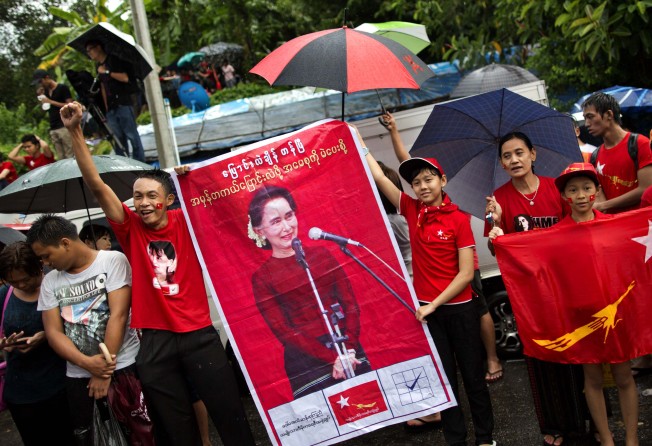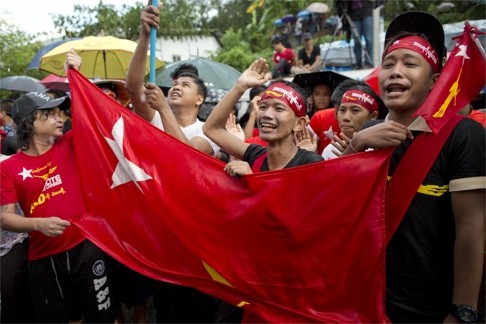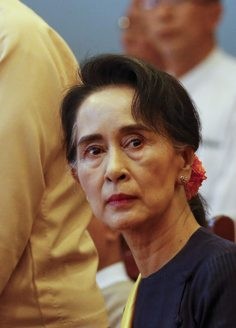
Book review: The Rebel of Rangoon shows Myanmar at a democratic crossroads
Delphine Schrank presents an insightful account of the figures who fought the military junta as they move into positions of political power themselves


by Delphine Schrank
Nation Books

In June this year, KFC opened its first outlet in Myanmar. It is fitting that after decades of military rule the original fast-food chain to be established there should be fronted by “the Colonel”. The benevolent grin of Harland Sanders , though, bears no likeness to the Burmese armed forces. For the generals, democracy is “disciplined” or not at all; a peace of the prison yard.
Before the elections on November 8, which Aung San Suu Kyi’s National League for Democracy (NLD) has won, and which the army has pledged to accept, Amnesty International, as well as Fortify Rights and the human rights programme at Harvard Law School, documented the continued imprisonment of rights activists, community organisers, student leaders, teachers, union officials and lawyers. Over the years, these people have struggled with fearless enterprise against the military regime in the name of democracy and popular sovereignty. They are the focus of Delphine Schrank’s gripping account of Myanmar’s radical underground.
Schrank was the Myanmar correspondent for The Washington Post between 2007 and 2011. Drawing on her notebooks and hundreds of hours of audio recordings from the time, she chronicles the daily struggles of “Nway”, “Nigel”, and “Grandpa” U Win Tin, three men who rose up through the ranks of the NLD as key strategists and organisers. The years they spent under the cruel oppressions of the junta became what Václav Havel once described as “the experience of life at the very ramparts of dehumanised power”.
Nway is the charismatic renegade from Twantay, who is handpicked by “Auntie” Suu Kyi to co-ordinate subversive activities; Nigel, Nway’s equal and sometime rival, was part of the “Saffron Generation”, and was radicalised in prison; and U Win Tin, the poet-intellectual, emerged from 20 years of incarceration to help Daw Suu manage the party as it confronted the arbitrary violence of dictatorship.

By opening up to the world, the regime is attempting to diversify its international relations. Schrank’s contention, though, is that the cause of Myanmar’s political reformation, and the loosening of military control, lies with the tireless actions of ordinary NLD activists. She reminds us that the history of the pro-democracy movement isn’t just the singular defiance of Aung San Suu Kyi, but the collective endeavour and sacrifice of her supporters.
Schrank captures the white-knuckle immediacy of life in the shadows. We trail Nway, Nigel and co on foot through grubby alleys as they evade capture by the secret police (“the dogs”), or into safe houses buried deep within colonial buildings sagging under the weight of Yangon’s tropical air. Her characters represent a world of anonymous heroes, the ordinary men and women who conspire and organise, who distribute subversive literature (including the Universal Declaration of Human Rights), broadcast pirate radio, hide wanted dissidents, recruit new ones, smuggle information to foreign journalists and rendezvous with exile groups in Thailand.

As she writes, this is a “time for revolutionaries learning to be politicians”. But their politics was honed in the underground, a world away from governing a country that is desperately poor, fighting armed insurgents in places such as Kayin and Rakhine states, and witnessing a possible genocide against the Rohingya Muslim minority. The question of how successful the years of agitation have been in mobilising the support of the nation, and undermining the military’s control of the government, is being answered right now. The question of whether they can run a country is still unanswered.
The Guardian